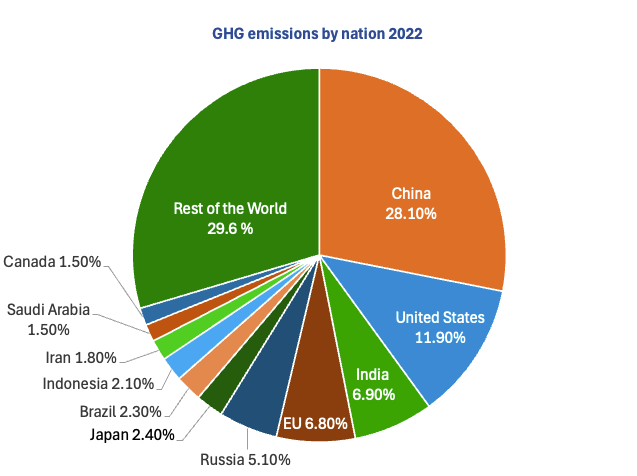Published by paulmacrae on 09 Feb 2025 at 05:33 pm
Justin Trudeau: The resignation speech he should have given (but didn’t)
PM admits at news conference that his economic, environmental and climate policies have been disastrous for Canadians and that he apologizes
By Paul MacRae, January 12, 2025
January 6, 2025
Thank you for coming today. I am here to announce that I am resigning as leader of the Liberal Party and Prime Minister, effective immediately.
I realize this means the opposition parties will vote non-confidence in my government in the next few days and that there will be a general election in a month or two. I could have prorogued Parliament for two months until my party could pick a new leader, but I believe the Canadian people should have the right to choose the government they want, on their schedule, not the schedule that would be most convenient for me and the Liberal Party.
I am sorry that my government has become so unpopular that only 16 per cent of Canadians would vote for the Liberal Party with me as leader,[1] and only slightly more voters if I resigned. But let me be clear: this drastic fall in popularity is entirely my fault.
Perhaps due to pride, perhaps because I isolated myself from advisors outside of my inner circle, I was unaware that Canadians are being hurt as much as they are by my economic policies.
In running up massive deficits year after year, I took the Canadian government off a stable financial path and increased Canada’s cost of borrowing to new, and fiscally dangerous, heights.[2] I am not an economist, so it’s not surprising that I didn’t understand that massive government debt undermines a nation’s economy, and therefore its people’s standard of living. No wonder Canadians are angry.
Climate policies have been ‘disastrous’
I must also say I’m sorry that my environmental and climate policies have been disastrous for Canadians’ well-being.
Canada’s natural-resources sector, including minerals and fossil fuels, represents about 19 per cent of Canada’s GDP.[3] But my ultra-environmentalist policies made it harder for companies to prospect for minerals and extract fossil fuels, and to ship fossil fuels through pipelines. Inevitably, Canada’s GDP has been hurt,[4] meaning that people have less money to spend, while products they buy are more expensive.
However, I believe my worst failing for Canadians was my policies on “climate change.” Based on those policies, I brought in carbon taxes and other restrictions that further hobbled Canada’s industrial and natural-resource sectors and discouraged foreign investment in Canada. If I had done any research, I would have realized that these climate policies are absurd in the Canadian context.
Canada represents less than 1.5 per cent of the globe’s “carbon emissions” (see Figure 1)—most of these emissions now come from developing countries like China and India, and their emissions are increasing.[5] Meanwhile, even if all nations, including Canada, met their Paris Climate Accord targets (they haven’t), we might decrease “global warming” by from 0.04° Celsius[6] to at most 0.07°C.[7]

Doing the math, if Canada achieved zero carbon emissions, we might reduce global warming by a mere 0.0015°C (using the “larger” 0.07°C estimate), or about a thousandth of a degree Celsius. To stop 0.0015°C of warming, my government planned to spend an estimated $60 billion a year—or $1.5 trillion by 2050—on climate measures.[8]
Even without an economics or science degree, I should have realized that spending $1.5 trillion to stop a thousandth of a degree in warming is absurd. What was I thinking?
I must also say I’m sorry for misleading Canadians about the effect of the carbon tax on prices and inflation. I said the carbon tax would not affect most Canadians—that they would get all or most of the money spent on purchases back in rebates. This was not quite true.
Yes, there might be carbon rebates for individual household purchases, but the carbon tax also applies to businesses that don’t get a rebate.[9] Inevitably, when companies pay the corporate carbon tax, their products and services must be that much more expensive. Thus, the carbon tax has led to increased prices and higher rates of inflation that are currently hurting Canadians economically.
The ultimate duty of a Prime Minister is to make his or her people better off, not worse off. But I now realize that my economic, environmental and climate policies have, in fact, made Canadians worse off.
I have failed to do my job, I am sorry, and so I am resigning as Liberal party leader and PM. I fully accept that my party must soon face the judgment of the many Canadians my policies have hurt. Thank you.
NOTES
[1] Angus Reid Institute, “The Federal Liberals’ New Year’s Eve Nightmare: Party vote intent sinks to 16%, Trudeau approval at all-time low.” Dec. 30, 2024.
[2] James Thorne, “Why Canada’s economy is on the ropes.” Globe and Mail, Sept. 17, 2024.
[3] “10 Key Facts on Canada’s Natural Resources—2023.” Natural Resources Canada, Government of Canada, Feb. 7, 2024.
[4] Grady Munro & Jake Fuss, “Historic decline in Canadian living standards continues into 2024.” Fraser Institute, May 31, 2024. The article notes that GDP growth for the first quarter of 2024 was 0.4%, but actually a fall of 0.2% when adjusted for inflation.
[5] Helen Davidson, “China continues coal spree despite climate goals.” The Guardian, Aug. 29, 2023.
[6] Bjorn Lomborg, “Section 7.3: Costs and benefits: Paris agreement.” In “Welfare in the 21st century.” Technological Forecasting and Social Change, Vol. 156, July 2020, 119981. Available online.
[7] R. Lindzen, W. Happer, W. A. van Wijngaarden, “Net Zero Averted Temperature Increase.” arXiv, June 2024.
[8] Royal Bank Special Reports, “The Net Zero opportunity.” The $2-trillion transition: Canada’s road to Net Zero. October 20, 2021
[9] “How carbon pricing works.” Environment and Natural Resources Canada, Government of Canada, Jan. 6, 2025.

